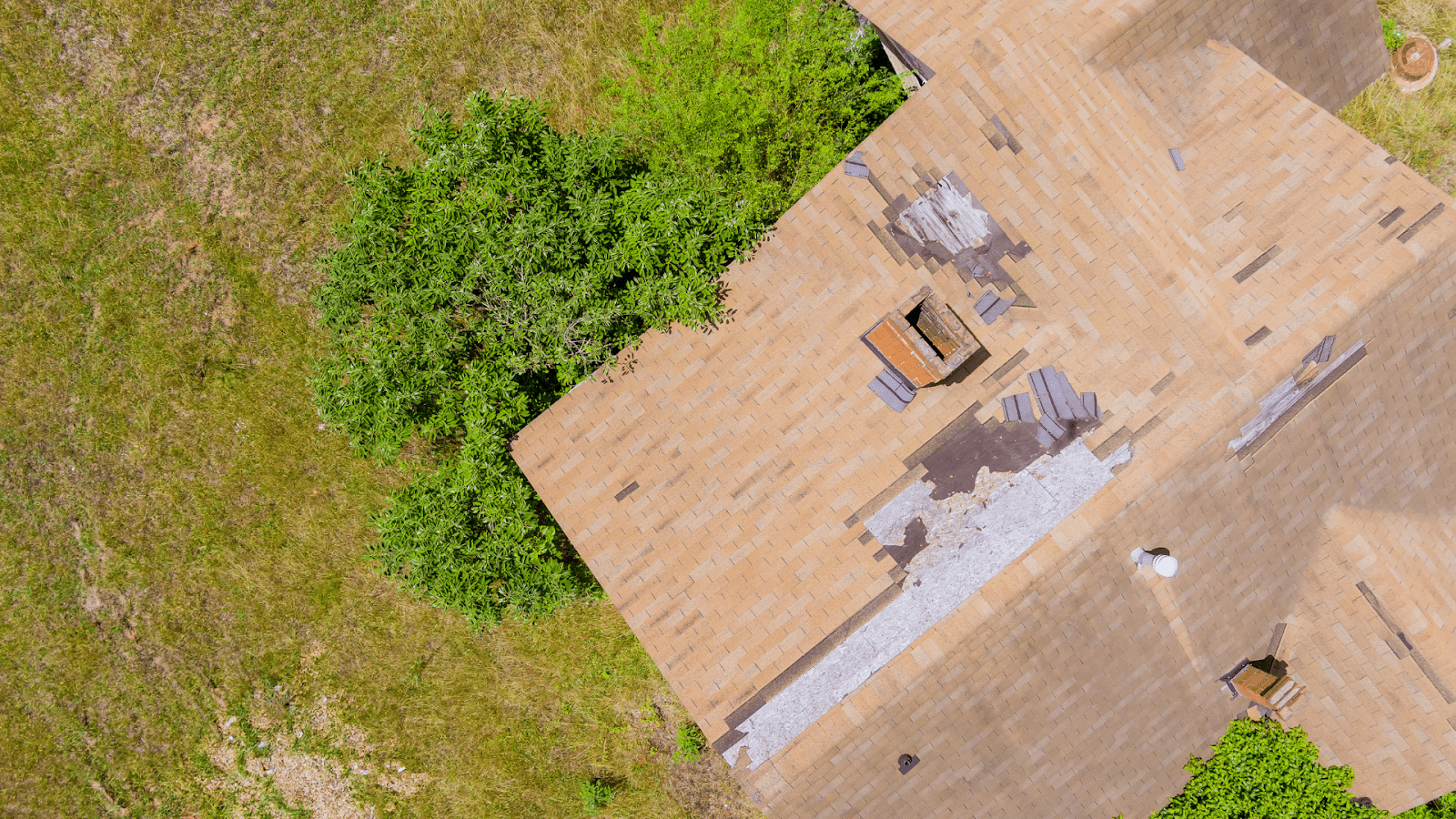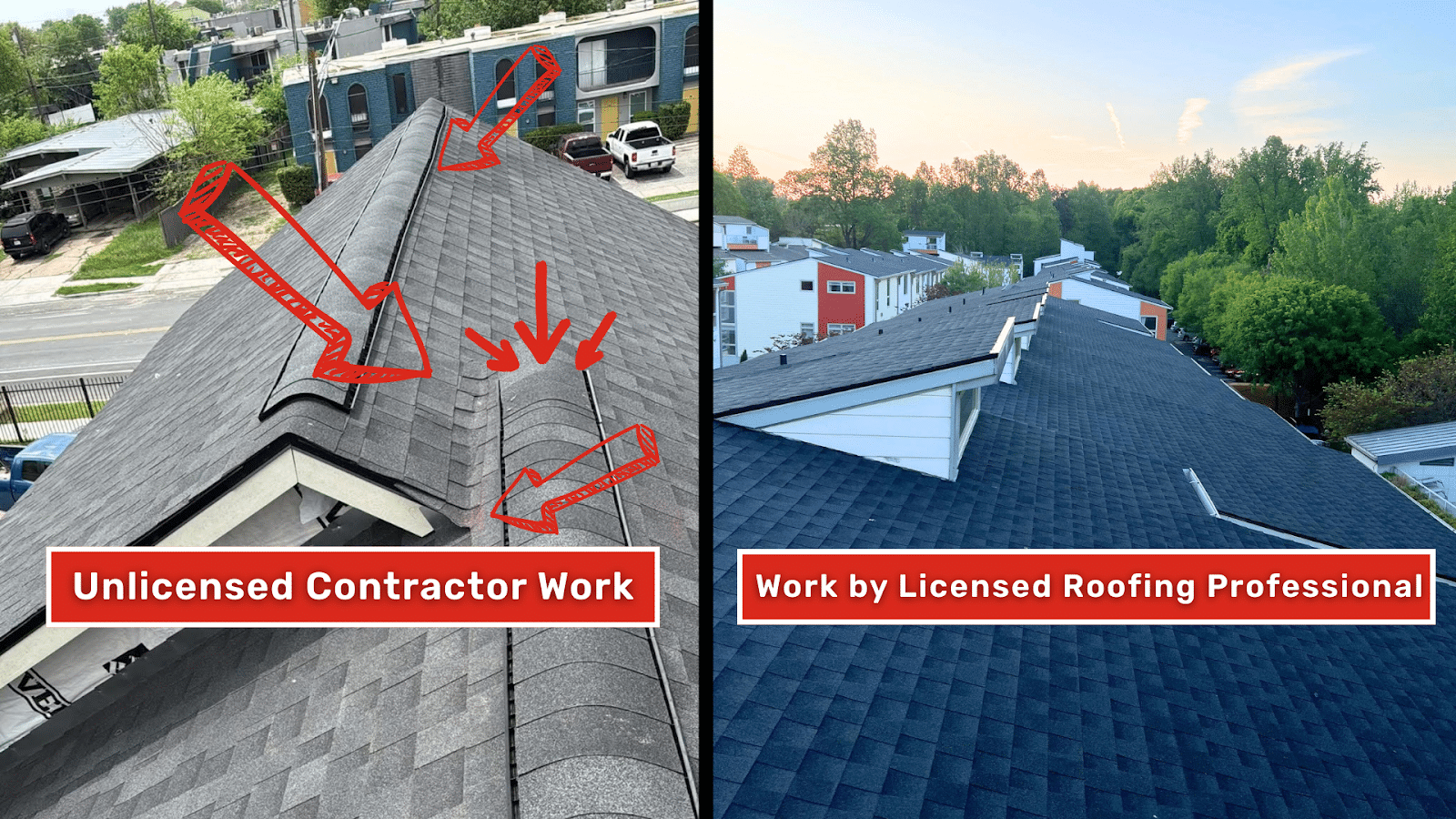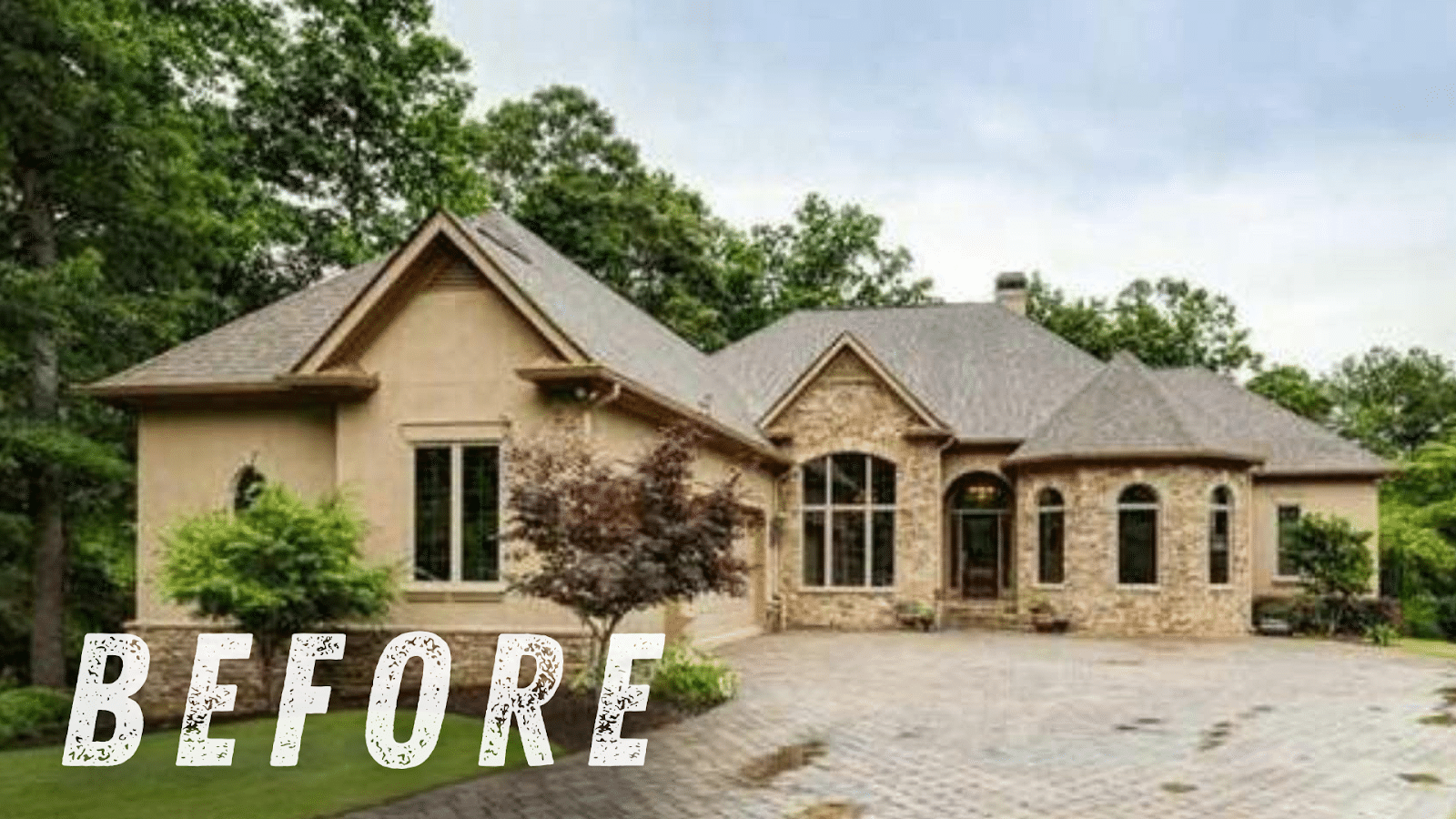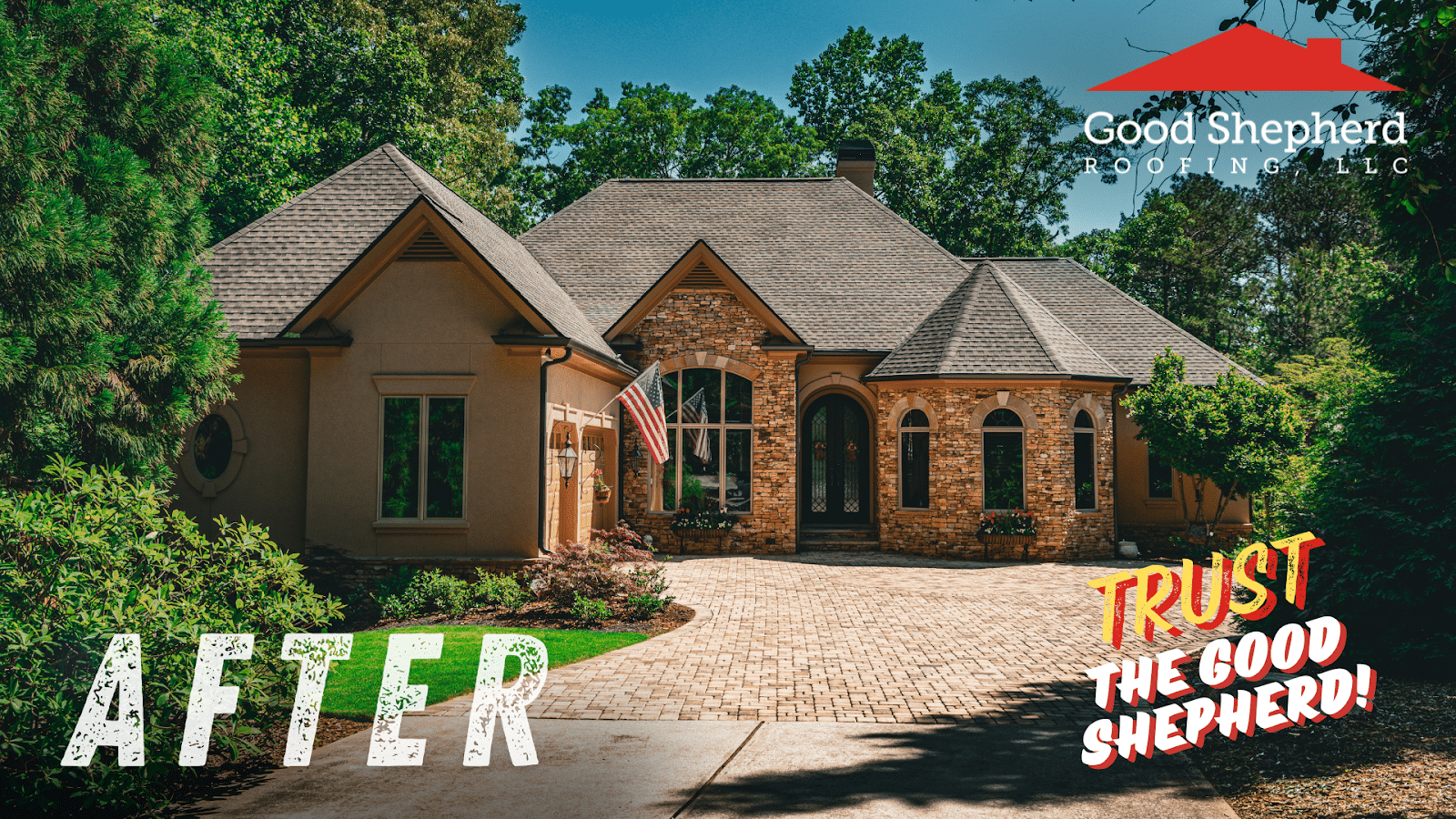A Homeowner’s Guide to Protecting Your Property and Your Wallet
Roofing scams are a growing issue across the state of Georgia, especially following seasonal storms that leave neighborhoods vulnerable to damage. When strong winds, hail, or heavy rain hit, homeowners are often left in a rush to get repairs done quickly—which is exactly when dishonest contractors strike. These scammers present themselves as helpful professionals, but their goal is to take advantage of urgency, confusion, and limited homeowner knowledge about the roofing process.
The rise in roofing fraud has become so widespread that Georgia’s Consumer Protection Division has issued warnings, and many local municipalities have received complaints. Knowing what red flags to look for and what questions to ask is critical. This blog will help Georgia homeowners understand how roofing scams operate, what warning signs to look out for, and how to hire a legitimate and trustworthy contractor for their home.
Why Georgia Is a Target for Roofing Scams?

Georgia’s frequent storms—especially during spring and summer—create the perfect conditions for roofing scams. When hail or high winds hit, neighborhoods become ripe targets for contractors offering to “inspect” damage or “work with your insurance.” While some of these companies are legitimate, others use pressure tactics or outright fraud to extract money from homeowners, often without completing any real work.
In regions like Metro Atlanta, Gwinnett County, and Hall County, where population density is high and storm activity is frequent, scam reports are more common. Storm chasers are particularly active in these areas, moving from town to town following weather patterns. These transient contractors often don’t hold proper licenses, offer no local references, and vanish without warning—leaving behind unfinished roofs and frustrated homeowners.
The problem is compounded by the fact that roofing is a high-cost, high-trust service. Homeowners unfamiliar with Roofing Terminology or the insurance claim process are more likely to rely on the contractor’s word. This opens the door for unethical individuals to exploit the situation for financial gain.
Common Roofing Scams in Georgia and How They Work
Understanding the specific methods scammers use can help you avoid becoming a victim. Below are the most common roofing scams reported in Georgia communities:
Storm Chaser Scam
Storm chasers are contractors who follow severe weather events and go door to door in affected neighborhoods. They often claim they can offer quick repairs or full replacements based on storm damage, but in reality, they usually lack the proper local credentials and often cut corners. In many cases, they demand payment upfront and leave the job incomplete or poorly done.
Fake Insurance Damage
In this scam, a contractor might Inspect Your Roof and claim they’ve found extensive damage—even when there’s little to none. They may even create damage themselves to fabricate evidence for an insurance claim. Filing a false claim can result in denial of coverage or even insurance fraud accusations. Ethical contractors should always provide photo evidence and a full explanation of any issues found.
Disappearing Deposits
Another common scam involves asking for a large upfront deposit to “secure materials” or “hold your spot.” Once paid, the contractor disappears without performing any work. This is especially common when payments are requested in cash or via peer-to-peer apps. Reputable contractors will provide clear payment schedules and only request deposits after formal agreements are signed.
Exaggerated Inspections and Repairs
Some companies inflate the scope of damage during inspections and quote high repair costs. Without showing you actual images or giving you time to compare quotes, they pressure you into signing contracts on the spot. A legitimate contractor should never use scare tactics or vague language to close a deal.

How to Check a Roofer’s Credentials in Georgia?
Hiring a Roofing Contractor in Georgia doesn’t require a state-issued license, which means the burden falls on homeowners to ensure the company is properly insured and operating legally. Start by asking for proof of liability insurance and workers’ compensation. If they can’t provide it, or they show paperwork that seems vague or outdated, consider it a red flag.
In addition, verify the contractor’s business license with your local city or county government. Many Georgia municipalities—especially in areas like Lawrenceville, Roswell, and Sandy Springs—require permits and business registrations for roofers working within city limits. A company that routinely pulls permits is more likely to follow proper building codes and safety procedures.
Also, check online reviews and directories like the Better Business Bureau (BBB), the Georgia Secretary of State’s business search portal, or HomeAdvisor, Angi, and Nextdoor. Look for consistent customer feedback, project photos, and signs of long-term service in the area. A contractor with dozens of recent reviews from Georgia homeowners is a better bet than someone who just set up a Google listing last week.
What to Look for in a Roofing Contract?
Before signing anything, make sure your Roofing Contract is detailed and transparent. It should include a breakdown of materials to be used, the project timeline, labor costs, warranty information, and payment terms. Avoid contractors who use vague language such as “basic materials” or who won’t commit to start and end dates.
If anything seems unclear, don’t be afraid to ask for clarification or to seek a second opinion. Scammers rely on homeowners being too overwhelmed or polite to challenge them. An ethical contractor will welcome questions and provide thorough answers.
How to Protect Yourself from Roofing Scams?
To protect your investment and your home, follow these key steps:
- Ask for and verify proof of insurance and local business licensing.
- Request before-and-after photos of similar projects they’ve completed.
- Make sure you receive a written contract before any payments are made.
In addition, be skeptical of contractors who offer steep discounts or say they can waive your deductible—this is illegal in many cases and could result in denied insurance claims. Be especially cautious during high-storm periods when legitimate Roofing Companies are already busy. Scammers take advantage of that urgency.
Finally, educate your neighbors. Scammers often hit multiple homes in the same area. Letting others know about potential red flags can help your community stay protected.
What to Do If You Suspect a Scam?
If you think you’ve been targeted or defrauded by a roofing contractor, report the incident to the Georgia Attorney General’s Consumer Protection Division. You can also file complaints through the Better Business Bureau or contact your local police department if you’ve lost money or property.
If the issue involves insurance fraud, contact your provider immediately. They may investigate and place a hold on any payout until the matter is resolved. Keep detailed records of all interactions, including names, receipts, photos, and communications, as this documentation can support your case.
Consulting with a local attorney may be worthwhile if a large sum of money is involved. While litigation is never ideal, protecting your home and finances should always be your top priority.
Choosing the Right Roofing Contractor in Georgia


Look for companies that offer written warranties for both workmanship and materials. This shows that they stand behind their work and plan to be around if future issues arise. Ask to see a portfolio of past projects and request contact information for recent references.
If you’re in Georgia and looking for a roofing contractor, choose one that prioritizes education, transparency, and long-term relationships over fast sales. The best roofing companies focus on doing the job right the first time—not making a quick profit.
Moving Forward with Confidence
Don’t let a bad contractor turn your Roofing Project into a nightmare. Protect your home by staying informed, asking questions, and working with professionals who put your needs first. Trust, transparency, and tradition still matter—and when it comes to your roof, they matter most.

